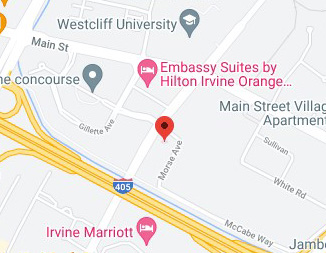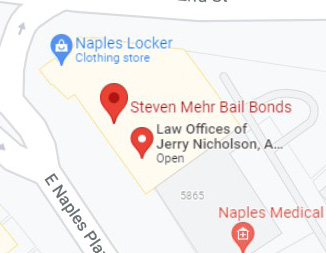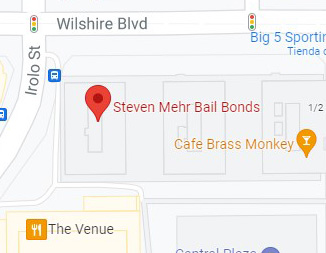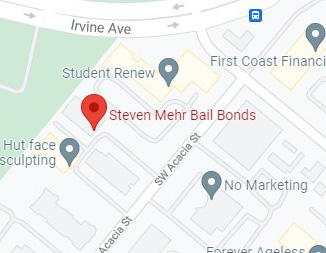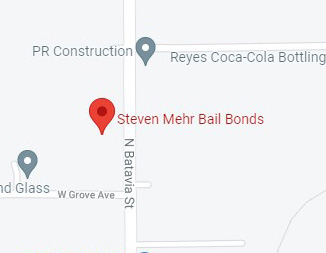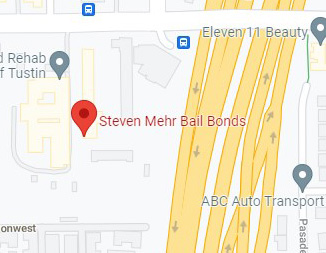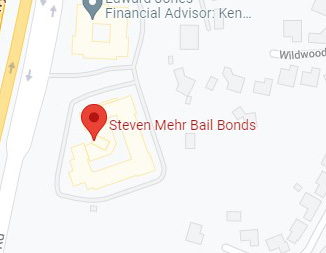Walking out of jail following an arrest is one of the greatest and calming feelings in the world. However, sometimes it might not be easy as most people assume, especially if the alleged offense is a felony or any other severe offense. If the allegations against you are severe, the police may have to keep you in custody until you post or pay your bail.
Whichever charge you are up against, our experienced bilingual bail bondsmen at Steven Mehr Bail Bonds are available 24/7, ready to post your bail to secure your deserved release from jail without unnecessary delay. With our dependable bail bondsmen in your corner, you don't have to break a neck or use your emergency fund to pay the required cash bail.
Continue reading this article to know why it is a brilliant idea to post a bail bond and how the services of a dependable bail bondsman or agent might come in handy if you’re in jail for any alleged offense in La Crescenta, California.
What to Anticipate Immediately After a Police Arrest
Knowing and understanding the events following an arrest is critical to know what to do if you are under arrest to protect your best interests. Following an arrest, you should anticipate the following events:
Investigation/Questioning
The arresting officers may investigate or question you following an arrest to find pieces of evidence or information to use against you in court. At this point, you may feel like proving your innocence to the officers, but that cannot help in this situation.
To protect your interests and legal rights, if the arresting officer can't stop the questioning, you should remain silent and insist on talking to an attorney.
Booking and Processing
Once you’re at the sheriff or police’s station, it is wise to abide by the arresting officer's instructions to avoid more severe charges. Typically, once you’re here, you should expect a mandatory procedure legally known as booking and processing, which involves:
-
Background criminal history check
-
Recording of vital information or details, including:
-
Your legal name
-
The alleged case
-
Age
-
Date of the arrest
-
Date and year of birth
-
Fingerprints
-
Full body search
-
Mugshots
-
Confiscation of personal belongings, including jewelry, belt, and clothing
After the above procedure, the officers will have few options, including:
-
Permit you to leave jail on a directive or citation to come back for the oncoming hearings to prove your innocence
-
Allow you to post cash bail if the alleged offense you are up against is in their local bail schedule
-
Lock you up in jail, awaiting the bail hearing for the alleged offense
Bail Hearing
Unfortunately, sometimes securing your release at the police or sheriff’s station after an arrest is almost impossible, especially if the alleged case is violent or severe, like murder or criminal threats. In this kind of situation, you will remain custody awaiting the court's decision at the arraignment/bail hearing on whether you can secure your release on bail or not.
Technically, the arraignment hearing must occur within less than 48 hours following an arrest as long as the arrest didn't happen on the weekend. If an arrest occurs on the weekend, a defendant must wait until the next court day for a bail hearing.
At this court proceeding, the judge must read the allegations you are facing. Then he/she will advise you of your legal rights before allowing you to take a plea of your choice. If you plan to plead "not guilty" to the alleged offense, this will be your chance to do so.
However, before taking your plea of choice, it is advisable to talk and discuss this issue with your defense attorney because your plea choice will come with some legal consequences.
After taking your plea of choice, the next legal issue is to determine whether or not you should remain in jail as your case continues. To do this, the judge will hold a bail hearing immediately where your attorney should be ready with proper evidence to prove to the court that you’re the right candidate for this option of securing release from jail following an arrest.
Here is what the judge will consider when evaluating and determining your eligibility to post/pay bail and the total amount you must pay for your release on bail:
-
Your arrest or criminal record
-
Your history in showing up in court after a release on bail
-
Community involvement or ties
-
The likelihood that you might flee or leave the state after release on bail (flight risk)
-
Community safety
If you’re eligible for a release from jail on bail, you should pay the required amount as soon as possible to go back to your daily life.
Obtaining a Release From Jail Without Bail
In some cases, at the arraignment/bail hearing, the court may give you back your freedom without having to post bail. For that, your attorney should help you request a pretrial release option known as Own Recognizance release (OR release).
Requesting an OR release during your first court appearance is a wise idea because it can save you the unaffordable sum of money the court would require you to pay as cash bail. However, obtaining a release from jail through this option is not automatic. Just like bail, the judge will consider the same factors listed above when deciding whether to grant you an OR release or not.
Typically, if you intend to obtain your freedom from jail through OR, you must be ready to promise the court that you will come back to defend your case during the oncoming hearings. Unless the alleged charge attracts a death penalty or poses a danger/threat to the community's safety, you might be eligible for an OR release if you are in police custody in La Crescenta.
If it is impossible to obtain a release from jail through this option, you have to post bail as most defendants in the same situation would do, pending the alleged charge’s final verdict.
Why Most Defendants Rely on the Services of Bail Bondsman to Secure Their Freedom After an Arrest
Once the court determines your bail amount at the bail hearing, you will walk out of jail after fully paying the required total bail amount without discount. You’ll have the following options when posting bail:
-
Use a cash
-
Use a property
-
Use a surety bond/bail bond
Posting a surety bond, also often known as a bail bond, is the most preferred option among the above three options because most defendants don't have the necessary total bail amount or property ready to act as security for their release. That is where a bond dealer or agent will intervene to pay your bail bond at some affordable rates.
Generally, the bail bond company will sign a legal contract with the court presiding over the alleged case, promising to pay or post your required full bail amount if you "skip bail" after obtaining your freedom. Under the law, "to skip bail" is the same as failing to appear in court after obtaining a release from police custody on bail.
Because the bail bond agency or company will have their money at risk to ensure you are out of jail following an arrest, they will expect you to make a payment of 10% non-refundable services fee of your total bail amount. That means if the total monetary bail amount required by the court is $50,000, the bail bondsman will expect you to make a payment of $5,000 as their services fee.
If your total bail amount is too high, the bail bondsman may even demand collateral to act as an assurance that you are willing to abide by the conditions of your release. The collateral the agency will accept as surety for your release must be of the same value as your bail amount, for example:
-
Real estate
-
A house
-
Motor vehicle
For that reason, it is wise to comply with your bail conditions and orders, knowing that you could be subject to severe repercussions if you violate any of them. Below are some of the pretrial conditions you must comply with after a release from jail on bail:
-
Check-in with your court-appointed pretrial release officer periodically
-
Don't leave the county or state
-
Don't drink
-
Surrender your driving license
Consequences of Skipping Bail
Missing a court proceeding once you are out of police custody on bail can make you subject to severe consequences under the law. Explained below are some of the consequences of skipping bail:
The Court Will Hold on Your Bail Money/Property
If you had to pay cash bail to act as surety for your release, you might be at risk of losing the money if you’re unavailable on the oncoming court proceedings or hearings to prove your innocence. Similarly, if you had to use your property as security for your release, the court will confiscate the property in an attempt to recover the sum of money you would pay as bail.
Your Will be Indebted to Your Bail Bond Agency for Paying Your Bail Bond
Since the bail bond company had a legal contract with the court to pay your full bail bond to guarantee your availability on the oncoming hearings, you will be indebted to them if you refuse to show up in court as required.
When you skip bail after a release on bail, the agency will retain the services of a professional private investigator to trace your whereabouts and apprehend you to recover their money back.
The Judge Will Order a Bench Warrant
A bench warrant is typically a court order that you will receive from the court to notify you of your failure to adhere to the orders and conditions of your bail release. The bench warrant will also authorize law enforcement officers to track you down and arrest you.
You may not want that to happen because a re-arrest following a release on bail will attract more charges and a possibility of remaining in jail without bail until the final verdict of the alleged underlying charge. The potential penalties you would be subject to after skipping bail will depend on whether the underlying alleged offense was a misdemeanor or a felony.
Hiring a bail bondsman to help you post a bail bond is a brilliant idea if you are under arrest in La Crescenta. However, you should be ready to comply with the requirements and conditions of this pretrial release option because the bail bondsman and the police will not rest until you are back in jail.
Court Hearings Following a Release on Bail
Once you are out of jail on bail, whether through cash bail or bail bond, you must attend the oncoming court hearings to counter the alleged charges for the best possible results. Here are court hearings or proceedings to anticipate after securing your deserved release from the detention hall or jail on bail:
Pretrial Hearing
If you believe the prosecutor has some illegal evidence against you, this is the chance your defense attorney should point it out to weaken his/her case against you. Once your attorney weakens the prosecutor's case against you, the judge may decide to dismiss or reduce it to a related, less severe offense.
Trial Hearing
If the alleged charge doesn't resolve at the pretrial stage, you’ll have to prove your innocence at the trial. At this hearing, you will depend on your defense attorney to show the court beyond a reasonable doubt that the allegations you are up against are untrue for a possible less severe charge or dismissal of the case.
Addresses of Jails/Detention Halls and Courthouses in La Crescenta, California
For an easy time when bailing a friend out of police custody in La Crescenta, you might need the following vital information/addresses:
Jails/Detention Halls
Crescenta Valley Sherrif's Station
Courthouses
Glendale Courthouse
Burbank Courthouse
Find a La Crescenta Bail Bondsman Near Me
Bilingual and courteous bail bond dealers at Steven Mehr Bail Bonds cares for your freedom if you’re behind bars for an alleged offense. Call us at 800-834-8522 if you need help with a bail bond wherever you are in La Crescenta for prompt and dependable bail services that you need to be home without delay.





